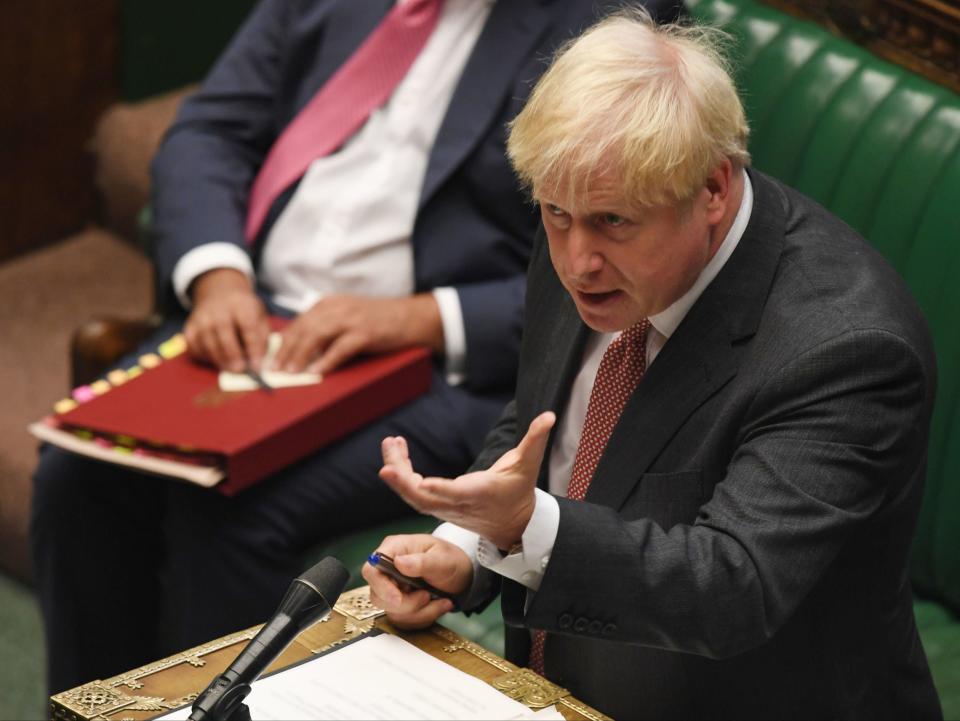At the very moment we need to scrutinise how UK aid is spent, the government scraps our select committee

Back in 2015, the UK made a highly significant legally binding commitment. Every year, it would spend 0.7 per cent of gross national income (GNI) on aid and development spending.
I am very proud that we have set such a high bar – and, as a Liberal Democrat, it would be remiss of me to mention that my party enshrined this target in law.
But it is no good just to make that promise and then leave the government to spend what is billions of pounds of taxpayers’ money unchecked. We need to know how that money is being spent, whether it is being done so effectively and if ministers are complying with the rules which govern how our aid spending, or Overseas Development Assistance (ODA), must be distributed.
The government recently merged the world-leading Department for International Development (DFID) with the Foreign Office, to form the new Foreign, Commonwealth and Development Office (FCDO). DFID was highly rated for the transparent and targeted way in which it spent ODA, with a real focus on poverty reduction. The Foreign Office does not make the same grade. So following this merger, more than ever we need to ensure that aid spending is being done right.
That is why the role of a select committee is important. Since the creation of DFID in 1997, it has been scrutinised by the International Development Select Committee, currently chaired by Sarah Champion MP.
Select committee scrutiny ensures that our aid spending is going to the right places. It is vital that the billions of pounds of taxpayers’ cash are spent effectively – but when left to their own devices and facing the budgetary pressures of government, ministers can sometimes be creative in their aid spend accounting.
In the Ministry of Defence, there is talk of spending ODA cash on a new navy hospital ship. Recently, £4.8m has been used to prop up UK supermarket chains. And the new FCDO brings DFID’s money within close reach of a department which has seen a squeeze on its funds over the last decade.
So it is important that ministers know that how they spend ODA funds will be scrutinised, and that they will be called out if they break the rules which determine where our aid spending should go. That is what the House of Commons’ International Development Select Committee has been doing for nearly 25 years – ensuring aid spending delivers value for money.
And of course it’s not just value for money for the taxpayer. If we can make sure our aid spending is effective and well-targeted, then we ensure it delivers for the most vulnerable around the world.
The International Development Select Committee has also done incredibly important work in assessing where our aid spending has sadly contributed to real harms – their current inquiry into sexual exploitation and abuse in the aid sector is but one piece in a line of inquiries that have made an important contribution to safeguarding practices.
The problem is that just at that moment when scrutiny is needed most, the government seems reluctant to commit to it. Now DFID no longer exists, they will not commit to the future of the International Development Select Committee – even though the government will continue to spend on aid and development just as before.
We need to guarantee that the government’s spending is checked, so that UK aid can help reduce poverty around the world.
That’s why I am tabling the ODA Committee Bill, which would set up a new parliamentary select committee examining how our aid money is spent across government. MPs from almost every party have co-sponsored my Bill, including the current chair of the select committee, Sarah Champion, a Conservative former minister for DFID, and the SNP spokesperson for development.
We might wear different political stripes, but we all agree that scrutiny of our aid budget is a good thing. I urge the government to support my Bill – I hope they will recognise that it is the best thing for the taxpayer and for those people whom our aid spending is meant to support.
Wendy Chamberlain is Liberal Democrat MP for North East Fife
Read more
Climate crisis: UK aid money funnelled into fossil fuel companies
UK aid could help fix the world – but not under Boris Johnson’s plans
Boris Johnson urged to reconsider ‘unnecessary and expensive’ DfID merger by almost 200 charities

 Yahoo Finance
Yahoo Finance 